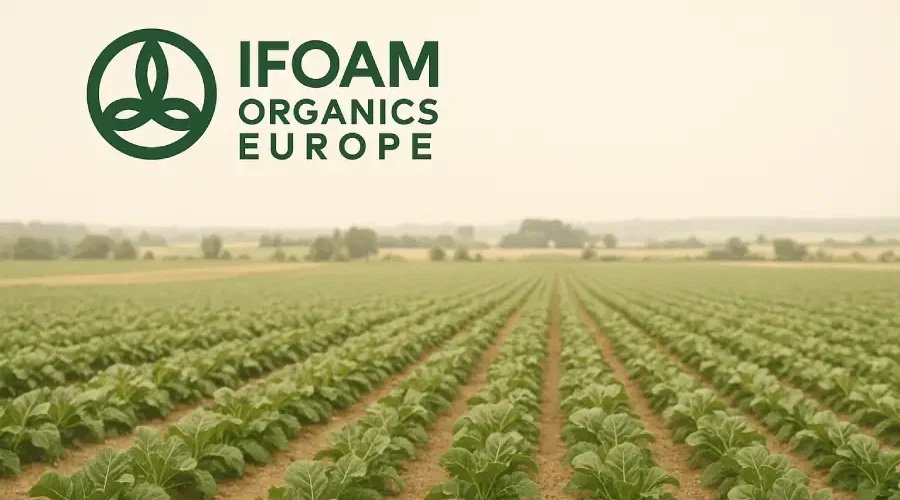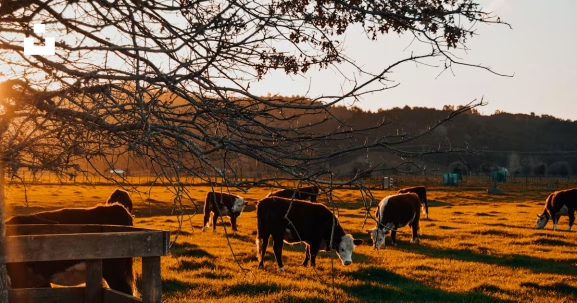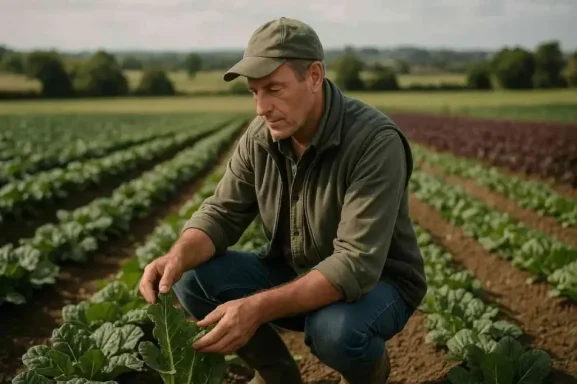Europe’s Advocate for Organic Farming & Regulation
IFOAM Organics Europe leads the push for organic agriculture, organic regulation, and sustainable food systems across the European Union. Representing over 200 member organisations in 34 countries, it works at every stage of the organic supply chain—from seeds and plant protection to animal welfare, food policy, and fairness in trade. Its mission: transform how food is produced in Europe toward health, ecology, care, and fairness.
IFOAM Organics Europe
In this article we explore what IFOAM does, its priorities, challenges, and how organic regulation and policy shape farming for the future.
What is Organic Regulation & Why It Matters
Organic regulation (especially Regulation EU 2018/848) covers everything from seeds and soil to livestock, processing, labelling, and inputs.
Agriculture and rural development
Rules include:
- Prohibition of GMOs, growth promoters, synthetic pesticides in organic farming.
Agriculture and rural development. - Requirements for animal welfare: organic feed, space, outdoor access, restricted antibiotic use.
- Agriculture and rural development
Standards for crop rotation, nutrient management, plant protection using non-synthetic, indirect methods.
Agriculture and rural development
IFOAM Organics Europe insists organic regulation must be workable, fair, and supportive to farmers. It pushes for clarity, consistent enforcement, and ensuring smallholders can meet requirements.
CAP & Rural Development: Public Money for Public Goods
The Common Agricultural Policy (CAP) is central to how organic farming in Europe is supported. IFOAM works to ensure farmers converting to organic systems, or maintaining organic practices, receive adequate support.
Key demands from IFOAM:
- CAP should reward public goods: soil health, clean water, biodiversity, climate mitigation.
- Eco-schemes and rural development funds must include strong support for organic conversion and maintenance.
- Member States should commit to targets. Europe aims for 25% of agricultural land under organic farming by 2030. IFOAM monitors this ambition and urges more funding and ambition.
Seeds, GMOs & Genetic Biodiversity
Organic seeds and genetic resources are foundational for organic farming. IFOAM pushes for better access to organic reproductive material and stricter legislation around genetic engineering.
GMOs & New Genetic Techniques
- Organic farming in Europe remains GMO-free by law. New genetic editing techniques (NGTs) like CRISPR are treated as GMOs under current regulation.
- IFOAM works with its members to maintain traceability, labelling, and risk assessments for GMOs.
- It also advocates against patents on life (seeds) and for strengthening the rights of farmers regarding seeds and plant breeding.
Plant Health Care, Soil, Water & Biodiversity
Organic farming depends on strong ecosystems. IFOAM addresses plant health care through prevention, soil building, and natural protection.
- Synthetic pesticides are banned; only limited natural or low-risk substances allowed under organic regulation.
- Soil health, water conservation, biodiversity (including pollinators and wild flora/fauna) are core objectives. Practices like crop rotation, organic nutrient sources, and avoidance of harmful inputs support these.
Agriculture and rural development
Climate Change, Animal Welfare & Organic Textiles
Climate Change
Organic farming helps mitigate climate change by storing carbon in soils, reducing use of synthetic fertilisers, and improving ecosystem resilience. IFOAM aligns with EU environmental goals and Green Deal strategies.
Animal Welfare
Organic rules demand humane livestock treatment: proper space, feed, access to outdoors, and limited use of antibiotics. Animal welfare is both ethical commitment and part of sustainable productivity.
Agriculture and rural development
Organic Textiles
Organic principles extend beyond food. IFOAM promotes sustainable models in textile production: less harmful chemicals, fair labour, transparency in processing.
Food Policy, Fairness & Transparency
IFOAM works for policies that make organic food more available and trustworthy. It also focuses on fairness in supply chains and transparency.
- Food policy: EU organic action plans, public procurement, school schemes to encourage organic consumption.
Agriculture and rural development. - Fairness & Transparency: protecting small or vulnerable producers, ensuring supply chains show where organic products come from, activist work around traceability and labels.
Research, Innovation & Organic Delivers Campaign
IFOAM invests in research and knowledge-sharing: finding better organic plant breeds, improving organic inputs, supporting agroecological innovation.
Campaigns like #OrganicDelivers communicate benefits to public and policymakers—health, biodiversity, climate action
Challenges & What Needs to Improve
- Regulatory complexity, especially for smallholders adapting to the new EU Organic Regulation.
- Underfunding of organic support within CAP, especially in some Member States.
- Pressure from biotechnology sector to relax rules around gene editing; threat to GMO-free integrity.
- Need for better access to organic seeds, better plant reproductive material legislation.
Why IFOAM Matters for Organic Regulation & Farming in Europe
IFOAM Organics Europe plays a critical role in shaping organic regulation, supporting farmers, defending organic standards, and pushing for fair trade in food systems. As Europe works toward its 2030 targets—like 25% organic land—it offers not just rules, but a vision for sustainable, GMO-free, biodiverse farming that benefits both producers and consumers.
Frequently Asked Questions
IFOAM Organics Europe is the leading advocacy group for organic farming in the EU. It represents more than 200 member organisations across 34 countries, shaping policy, promoting organic regulation, and supporting farmers.
The cornerstone of organic farming in Europe is EU Regulation 2018/848. It sets standards for seeds, soil, livestock, processing, inputs, and labeling while banning GMOs, synthetic fertilizers, and most pesticides.
EU organic regulation guarantees:
- Clear labeling and consumer trust,
- Fair competition across markets,
- Strict rules on animal welfare and production,
- Environmental protection through soil health and biodiversity.
The Common Agricultural Policy (CAP) can fund conversion and maintenance of organic farms. IFOAM urges the EU to set binding targets, reward ecosystem services, and dedicate more CAP funding to organic practices.
No. EU organic regulation prohibits GMOs and new genetic techniques such as CRISPR. IFOAM campaigns for strict risk assessment, transparency, and farmers’ right to GMO-free seeds.
Farmers face high compliance costs, complex certification, limited access to organic seeds, and uneven CAP support. Smallholders are most affected, making policy reform a key demand for IFOAM.



